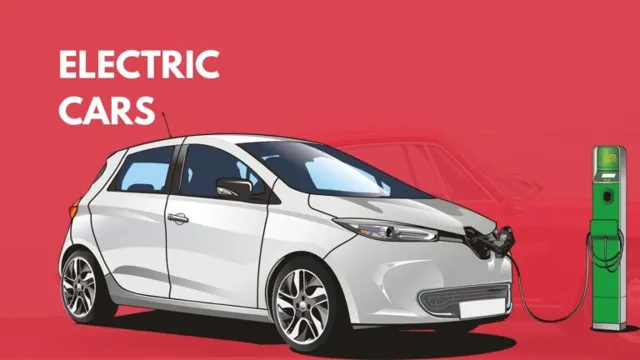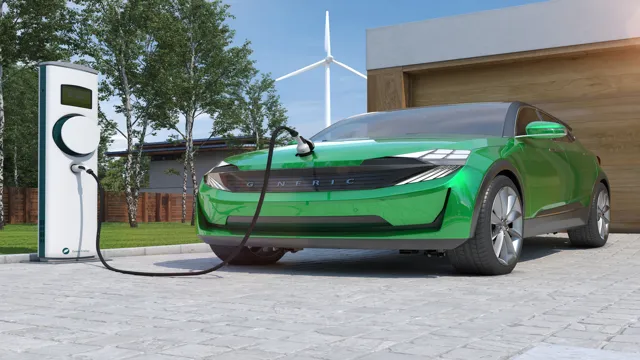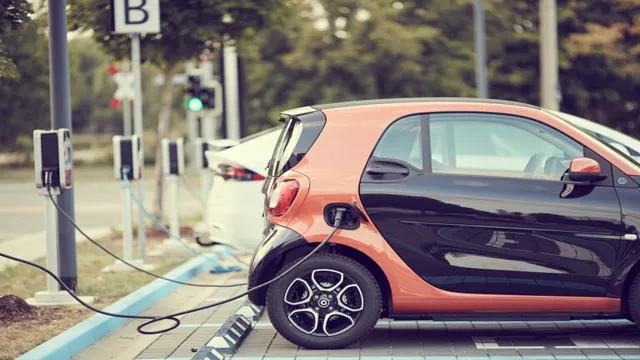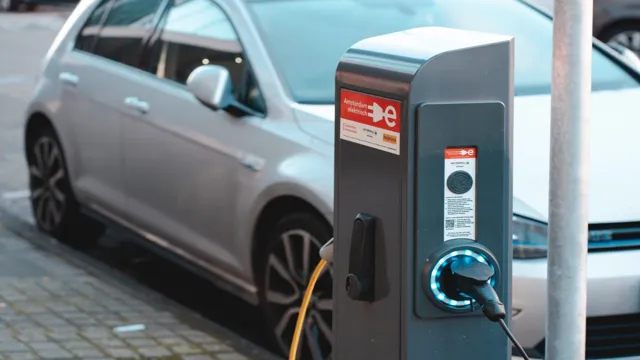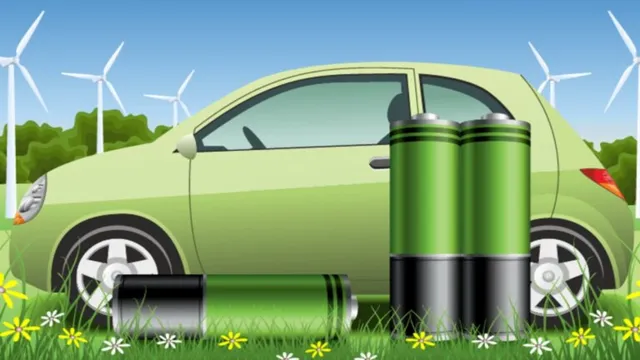Revolutionizing Commuting in London: Unveiling the Benefits of Electric Cars
Electric cars have been steadily gaining popularity in recent years, and for good reason. They offer a range of benefits not only for the environment but also for drivers and residents of cities like London. With its heavy traffic and congestion charges, London has become an unlikely hub for electric vehicles, with the city offering various incentives for their use.
One of the most impressive benefits of electric cars is their eco-friendliness. They produce no direct emissions, which means they don’t contribute to air pollution. This is particularly important in London where air quality has become a major concern.
The use of electric cars in the city has been instrumental in reducing emissions and improving air quality, making it a healthier place for everyone. But it’s not just the environment that benefits from electric cars – drivers do too. Electric cars are a lot cheaper to run than conventional cars, with electricity costs being significantly lower than petrol or diesel.
This makes them an excellent option for those looking to save money on their daily commute or long journeys. Another advantage of electric cars is their quietness. They produce very little noise, which means less noise pollution for residents of busy urban areas like London.
Not only that, but electric cars are also easy to drive and maintain, with fewer moving parts that need regular servicing or replacement. All in all, electric cars offer a range of benefits that make them an excellent choice for anyone looking for an eco-friendly, cost-effective, and convenient mode of transport in London. With the city’s commitment to reducing emissions and improving air quality, electric cars are only set to become more popular in the years to come.
Reduced Emissions
One of the biggest benefits of electric cars in London is their ability to significantly reduce emissions. With traditional petrol and diesel cars, harmful pollutants are released into the air, contributing to poor air quality and potential health issues. However, electric cars produce zero emissions while driving, meaning they have a far smaller impact on the environment.
In a city like London, where air pollution is a significant problem, electric cars offer a sustainable solution. They not only improve air quality but also reduce noise pollution, making for a cleaner, more peaceful environment. Additionally, using electric cars reduces our dependence on fossil fuels, which are finite resources.
By switching to electric vehicles, we can take a big step towards a more sustainable future, improving the quality of life for both ourselves and those around us.
Improves Air Quality in the city
The use of electric vehicles over gas-powered vehicles is a great way to improve the air quality in a city. Electric cars emit zero emissions, which means that they do not contribute to air pollution like their gas-powered counterparts. With more electric cars on the road, there will be a decreased amount of harmful pollutants, such as carbon monoxide, nitrogen oxides, and sulfur dioxide, in the air.
The incorporation of electric vehicles into our transportation system is a significant step toward reducing air pollution, protecting public health, and mitigating climate change. So, if you’re thinking about purchasing a new car, consider going electric, and be a part of the solution to improve the air quality in your city.
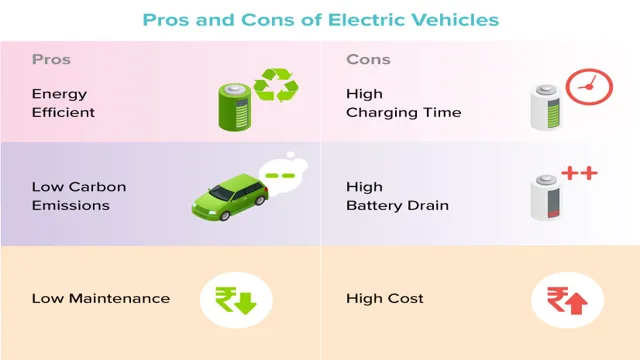
Less Noise Pollution on London roads
With more people opting for alternative modes of transportation like cycling and walking, there has been a significant reduction in noise pollution and emissions on London roads. This is a welcome change from the hustle and bustle of the city, where traffic jams and honking horns were a common occurrence. The use of electric vehicles and the implementation of the Ultra Low Emission Zone (ULEZ) has also played a major role in reducing emissions from vehicles.
The ULEZ charges vehicles that do not meet the required emission standards, thereby encouraging drivers to switch to cleaner alternatives like electric or hybrid cars. This has not only reduced emissions but also noise pollution as electric cars are much quieter than their petrol or diesel counterparts. With fewer emissions and noise pollution on the roads, Londoners can enjoy a safer and more peaceful environment.
It’s important to continue promoting sustainable modes of transportation and implementing measures that help to reduce emissions to ensure a healthier and more sustainable future for everyone.
London Congestion Charge
One of the most significant benefits of electric cars in London is their exemption from the city’s Congestion Charge. The Congestion Charge is a fee drivers must pay to enter certain parts of central London during peak hours. However, electric cars are exempt from this charge, saving their owners up to £15 per day.
This not only saves money for drivers, but also reduces traffic in heavily congested areas, helping to improve overall air quality in the city. Additionally, electric cars are often granted free or reduced parking rates in London, which can provide further cost savings. Overall, switching to an electric car in London can not only save money for drivers, but also contribute to a healthier and cleaner city for everyone.
Free for electric car owners
If you’re an electric car owner, you may have already discovered the benefits of free access to the London Congestion Charge. The charge is a fee that drivers must pay to enter certain parts of central London during peak hours, and it can add up quickly. However, electric car owners are exempt from this charge, which can save you a lot of money in the long run.
This is because electric cars produce zero emissions, which aligns with the government’s goal of reducing air pollution in the city. So, not only are electric cars better for the environment, but they also come with perks like this one. If you’re thinking about making the switch to an electric car, it’s worth considering the financial benefits, like the exemption from the London Congestion Charge.
Saves money on daily commute
Saves money on daily commute If you’re a daily commuter in London, the congestion charge can be a real headache. The good news is, with a bit of planning, this charge can be avoided altogether, which will save you a lot of money in the long run. The congestion charge is a fee that motorists must pay if they drive in certain areas of central London during peak hours.
This fee can add up quickly, especially if you commute to the city every day. However, by taking public transportation or walking or cycling to work, you can avoid the fee altogether and save yourself a significant amount of money each month. Plus, you’ll also be doing your part to reduce traffic congestion and air pollution in the city.
So why not give it a try and see how much money you can save on your daily commute?
Low Maintenance Costs
When it comes to the benefits of electric cars in London, one major advantage that should not be overlooked is their low maintenance costs. Because electric vehicles have fewer parts, there are fewer things to go wrong, and therefore less need for regular servicing. Electric cars don’t require oil changes, tune-ups, or emissions tests, and the brakes last longer since regenerative braking helps to slow the car down.
Additionally, electric cars are generally cheaper to maintain over time due to lower fuel costs and tax incentives. With the cost of living in London being generally high, opting for an electric vehicle could save you a significant amount of money in the long run. So, when considering the purchase of a car in London, factoring in its maintenance costs and fuel economy is an essential aspect of the decision-making process.
Electric motors have fewer parts than an internal combustion engine
Low maintenance costs are one of the biggest advantages of electric vehicles (EVs) due to their simpler design compared to internal combustion engines (ICEs). Electric motors have fewer parts, meaning they have a lower risk of breaking down and are easier to maintain. With fewer moving parts, there is less wear and tear, resulting in fewer repairs and less frequent maintenance check-ups.
Additionally, EVs don’t require regular oil changes, transmission repairs or air filter changes, which adds up to significant cost savings over time. As a result, the overall cost of ownership of an EV is considerably lower than that of a traditional car. Although EVs may have a higher initial purchase cost, the low maintenance costs make them a more economical choice in the long run.
So, if you want to save money and have a car that needs less frequent servicing, an EV might just be the perfect fit for you.
Brakes last longer as they regenerate energy
As electric vehicles continue to grow in popularity, one of their many benefits is their lower maintenance costs compared to traditional gas-powered vehicles. Brakes are a particular area where electric cars excel. With their regenerative braking system, instead of relying solely on friction to slow down, electric cars turn the energy produced during braking into electricity that can be used to power the car.
This not only leads to better efficiency but also prolongs the lifespan of the brake pads. In fact, in some cases, the brake pads on electric cars may last upwards of 100,000 miles before needing to be replaced. This means less money spent on maintenance and fewer trips to the mechanic.
With the added bonus of helping the environment by reducing emissions, it’s no wonder electric cars are becoming an increasingly popular choice for motorists.
Government Grants
Electric cars are becoming increasingly popular in London due to their numerous benefits. The reduced carbon emissions make them environmentally friendly, which is a major selling point for many buyers. Drivers also benefit from the quiet, smooth ride and low running costs – factors that are particularly attractive to those driving in inner-city areas with heavy traffic.
In addition, the UK government offers grants to those purchasing qualifying electric vehicles. These grants can cover up to 35% of the cost of a new electric car, which can be a significant saving. Furthermore, electric vehicle owners in London can take advantage of various incentives, such as free parking and access to bus lanes, helping to mitigate the city’s notorious traffic congestion.
Overall, the use of electric cars in London presents numerous benefits to drivers and the environment alike, making them a smart choice for those looking to reduce their carbon footprint and save money in the long run.
Reduced purchase price through government incentives
If you’re considering purchasing a new electric vehicle, there may be some additional financial benefits beyond the savings on gas. Government grants can significantly reduce the purchase price of an electric car, making it a more affordable option than a traditional gas-powered vehicle. In the United States, the federal government offers a tax credit of up to $7,500 for electric car purchases.
Some states and localities also offer additional incentives, such as rebates, tax credits, or reduced registration fees. These incentives can vary widely depending on where you live, so it’s important to do your research beforehand. By taking advantage of these government incentives, you can not only help reduce your carbon footprint but also save money on your vehicle purchase.
Installation of home charging station support
Thinking about installing a home charging station for your electric vehicle (EV)? You may be eligible for a government grant to help offset the installation costs. In an effort to encourage the adoption of EVs and improve the charging infrastructure across the country, the government offers support through grants. These grants can cover up to 75% of the installation costs for eligible homeowners, which can be a significant cost-saver.
However, it’s important to note that the specific details and eligibility criteria vary depending on the province or territory you reside in. So before making any decisions, be sure to do your research and check if you meet the requirements for the grant in your area. By taking advantage of these grants, you can make the switch to an EV even more cost-effective and help to contribute to a more sustainable future.
Conclusion
In conclusion, the benefits of electric cars in London are electrically charged! Not only do they help reduce air pollution and improve overall air quality in the city, but they also provide a more sustainable and economical mode of transportation. Electric cars save drivers money on fuel costs and maintenance, while also helping to reduce noise pollution in urban areas. With the future of transportation headed towards electrification, London is blazing the trail towards a cleaner, greener future.
So get charged up and switch to an electric car today!”
FAQs
What are the environmental benefits of driving an electric car in London?
Electric cars produce zero emissions, contributing to better air quality in London, which is known for its high levels of air pollution.
Can you help me understand how cost-effective electric cars are in London?
Electric cars can be cost-effective in London, as they benefit from several incentives, including discounts on road tax and congestion charges.
What is the range of electric cars in London? Is it enough for daily commutes?
The range of electric cars varies, but for daily commutes within London, most electric vehicle models have a range that exceeds 100 miles – more than enough for most commutes.
How easy is it to find charging stations in London for electric cars?
London has an extensive network of charging stations, making it easy to charge electric cars for those who live in the city or rely on it for their daily commute.
